Whether you’re a new driver or an experienced motorist, knowing what is and isn’t a driving offence is vital for a safe and lawful road network.
Driving offences in the UK encompass a wide range of violations, from minor infractions like driving a damaged vehicle to serious crimes such as dangerous driving.
Understanding these offences is crucial for drivers who wish to avoid penalties, points on their licence, or even disqualification from driving.
In this comprehensive guide, we’ll summarise the most common driving offences in the UK and explain the associated penalties.
So if you’re looking for a guide to help you pass your driving test, or just a refresher on the many motoring offences in the UK, read on…
What is a driving offence?
Driving offences cover a broad range of infringements, but generally they are acts on the road that are deemed to put other drivers at risk.
According to the Crown Prosecution Service (CPS), driving offences can range from document offences, which include failing to provide a driving licence, to causing death by dangerous driving.
Each offence has a different charge, which can often include points on your licence, paying a fine and, in the most extreme cases, a lengthy ban from driving or, at worst, a jail sentence.
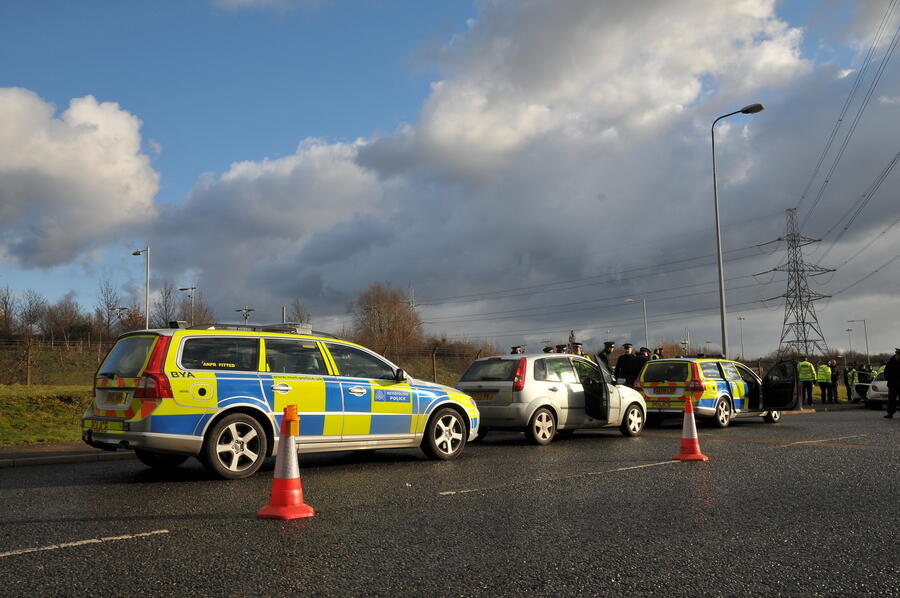
The most common driving offence in the UK is speeding. According to motoring court figures from the AA, 203,801 drivers were convicted of speeding in 2023.
Motorists driving without valid vehicle excise duty was the second most common offence in 2023, followed by those driving without insurance.
Other offences, such as using a mobile phone at the wheel, are still fairly low on the list in terms of convictions, but the number is rising fast. In 2023, 13,332 motorists were convicted of using a phone while driving, which was an increase of 90% year on year.
Types of driving offence
Speeding
Speeding is the most common type of driving offence in the UK, resulting in hundreds of thousands of convictions and millions of pounds in fines every year. If you’re caught, you’ll receive points on your licence (unless it’s your first offence) and will be fined. You can read our guide here for a more in-depth analysis of speeding.
Using your phone at the wheel
Using your phone at the wheel is a total no-no, and you’ll be heavily punished if you’re caught doing it. While it's a specific offence itself, it’s often the case that drivers are also charged with careless and dangerous driving.
Be warned: you can be charged with an offence if you use your phone even when stopped at a set of lights, queueing in traffic, or even when supervising a learner driver.
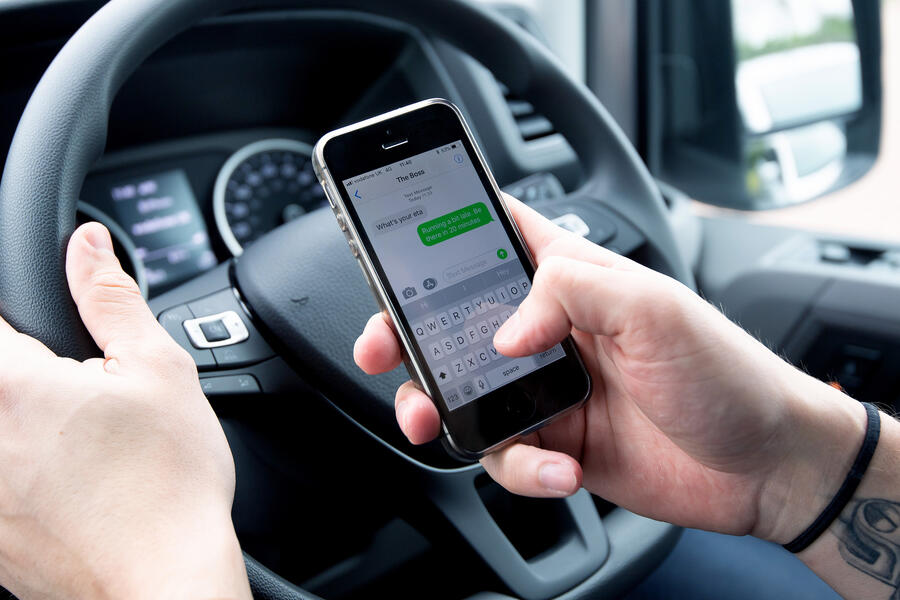
If you’re caught using your phone - and police forces are implementing new technology such as AI cameras to do this - you will receive six points on your licence and will be fined £200. This can be especially serious for young drivers because if you get six points within two years of passing your test, you'll lose your licence.
This does not include in-car apps such as Apple CarPlay and Android Auto, or using hands-free functions unless your driving is deemed particularly hazardous. Other exceptions include using your phone to pay at a drive-through like McDonalds or Costa, or if you need to call the emergency services.
Driving under the influence of drink and drugs
Similar to using your phone at the wheel, driving under the influence of drink and drugs is its own offence, but can also be considered dangerous or careless driving.
Let’s start with driving under the influence of alcohol. The Metropolitan Police, the force that covers Greater London, says: “If you’re driving, don’t drink any alcohol at all.”
The legal limit in England, Wales and Northern Ireland is 80mg of alcohol per 100ml of blood, or 35mg per 100ml of breath. In Scotland, it’s lower – 50mg per 100ml of blood, or 22mg per 100ml of breath.
As for drugs, the Met Police lists 17 different substances that are illegal to drive under the influence of, each with a different limit. We won’t list them here, but you can visit the official UK government site for more detailed information.
If you’re caught, punishments are severe, and you could lose your licence for extended periods (several years in some cases). You could also receive a criminal record, a maximum of six months in prison, an unlimited fine and even have difficulty travelling to some foreign countries. If you end up killing someone, you could face life in prison.
Driving without insurance
Driving without insurance is an offence that could hit you with a penalty of £300 and six points on your licence. The police can also seize your vehicle and, in the most extreme cases, destroy it.
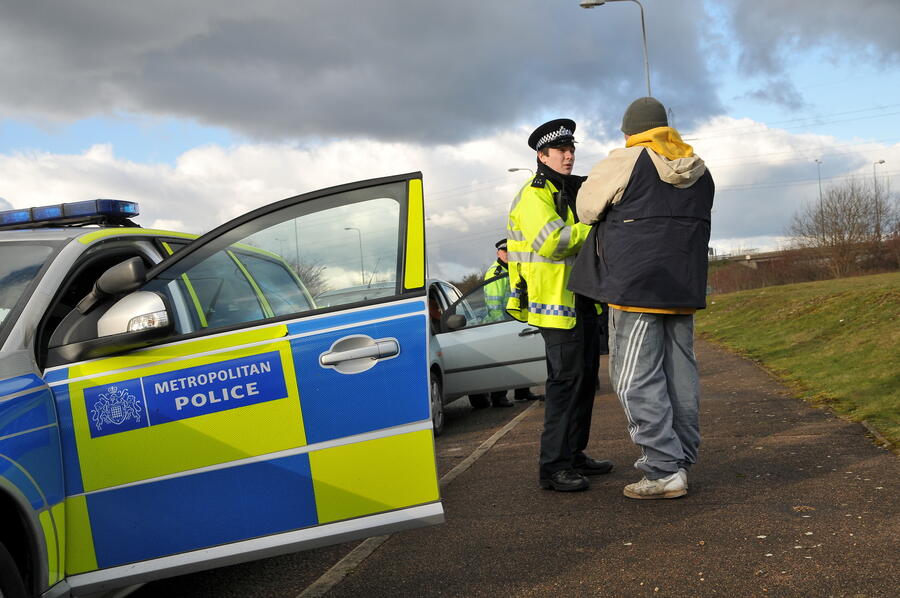
The government also says that if your vehicle is insured, but incorrectly, you could also be punished.
Careless or inconsiderate driving
Under the Road Traffic Act of 1988, drivers can be prosecuted for driving without due care and attention, otherwise known as careless or inconsiderate driving.
The CPS describes the offence as “when the defendant's driving falls below the standard expected of a competent and careful driver". It covers a series of common actions that some drivers probably do every day.
These include but aren’t limited to driving through a red light by mistake, turning into the path of another vehicle, flashing lights to force another driver to give way, driving too close to another car, lighting a cigarette, fiddling with the radio, driving too slowly, misusing lanes on a motorway (including lane hogging in the middle and outermost lanes) brake checking and purposely dazzling drivers with full beam.
Dangerous driving
The word ‘dangerous’ naturally sounds more severe than ‘careless’ or ‘inconsiderate’, and when you see the list of related offences, you can see why.
Described as when “the defendant’s driving falls far below the standard expected of a competent and careful driver”, it covers racing, ignoring road signs, dangerous overtaking, driving while drunk or when drugged, using your phone, reading, changing a CD or tuning the radio, driving when sleepy or driving with an unsafe load.
Document offences
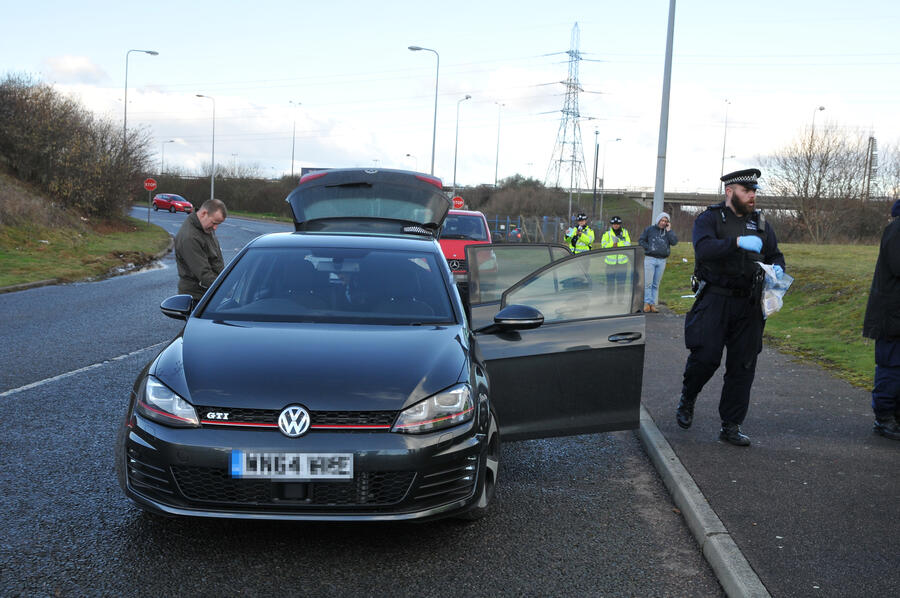
Document offences cover a few different infringements, including driving without a licence, an MOT or insurance.
If you’re caught driving without a valid licence, you could be fined £1000 and be slapped with three or six points on your licence. You could also be banned from driving. If your vehicle lacks an MOT, you can get fined up to £1000.
You’ll receive a far more serious punishment if you’re found to be driving without insurance. You could receive six to eight points on your licence, plus a fine of up to £5000. In some scenarios, you can be banned from driving for up to 12 months and have your car destroyed.
Driving while disqualified
If you’re already banned from driving, don’t try and sneak around it. It’s simply not worth it. If you’re caught, you will be arrested. According to Manchester-based solicitors Forbes, you could be fined up to £5000, have your ban extended, receive points or even be imprisoned for 12 months.
And the police can find you fairly easily, thanks to automatic vehicle registration recognition systems, which are fitted across the motorway network and on all police cars. For the record, they can also see if your car is taxed and if it has a valid MOT.
Not wearing a seatbelt
Make no bones about it - you must wear a seatbelt while driving. Not only will your car likely scream at you if you don’t, but you could also be fined up to £500 if you’re spotted. You can be fined a similar amount if your child, aged 14 or below, isn’t wearing one as well.
Failure to comply with red lights
Running a red light can have the same consequences as speeding, and you may get caught by a red light camera. They’re painted bright yellow and look very similar to speed cameras.
If you’re snapped, or seen by the police, expect a letter in the post, three points on your licence and a fine. If it’s your first offence, you could be invited to attend a driving awareness course in place of points.
Accident offences
An accident offence occurs in a few scenarios, including failing to stop at the scene of an accident, failing to report an incident within 24 hours, and failing to provide details or insurance. If you fail to do these actions, you’ll be fined, receive points and can even be slapped with a six-month prison sentence.
Driving a defective vehicle
Unlike with many of the offences on this list, you might be given a chance to fix your defective vehicle, if you’re caught driving it.
You'll be issued with a vehicle defect rectification notice, which requires you to repair your car within 14 days of the notice being issued and to keep a receipt of the repair work to show the police.
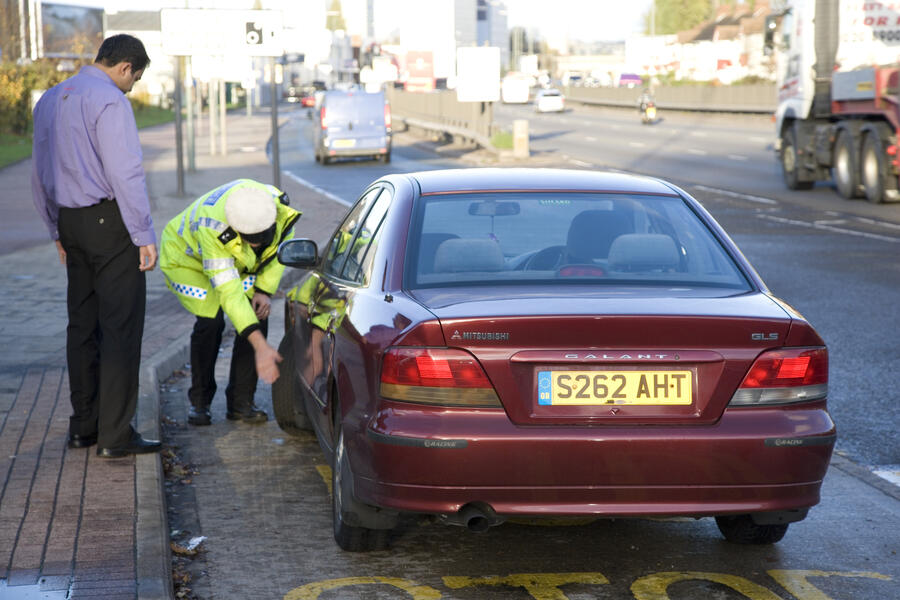
Vehicle defects that could cause you to be pulled over include a broken brake light, a cracked windscreen, and leaky brakes or oil.
However, if you’ve got insufficient tyre tread, you could be fined on the spot and receive points on your licence. You won’t get 14 days to change them either, because the police will ask you to sort the issue immediately. A broken windscreen can net you a fine of up to £2500.
Pedestrian crossing offences
Drivers are required by law to give way to pedestrians at a crossing, as soon as they set foot on its zebra-coloured stripes.
If you ignore a pedestrian at a crossing, you can receive a fixed penalty notice of £60, with up to three points on your licence.
You might also have noticed those zig-zag lines at some crossings. You must not park on these lines in any circumstances.

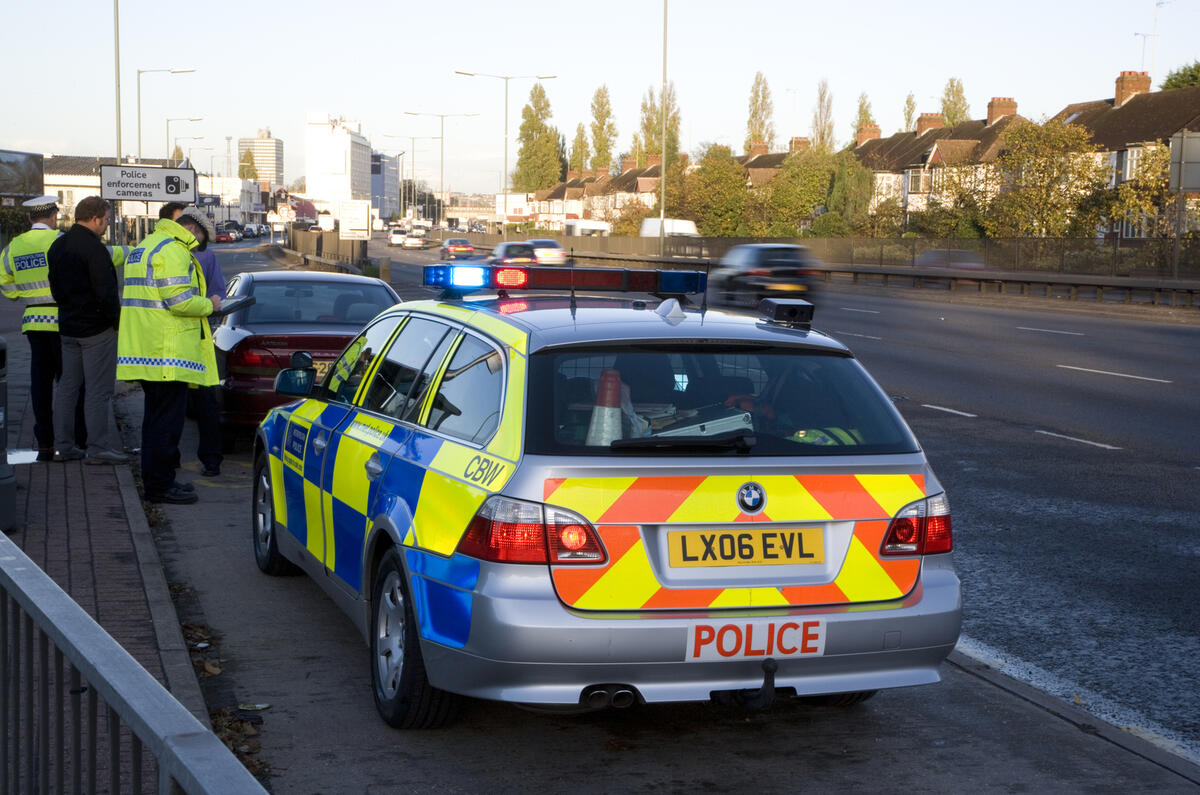


Add your comment